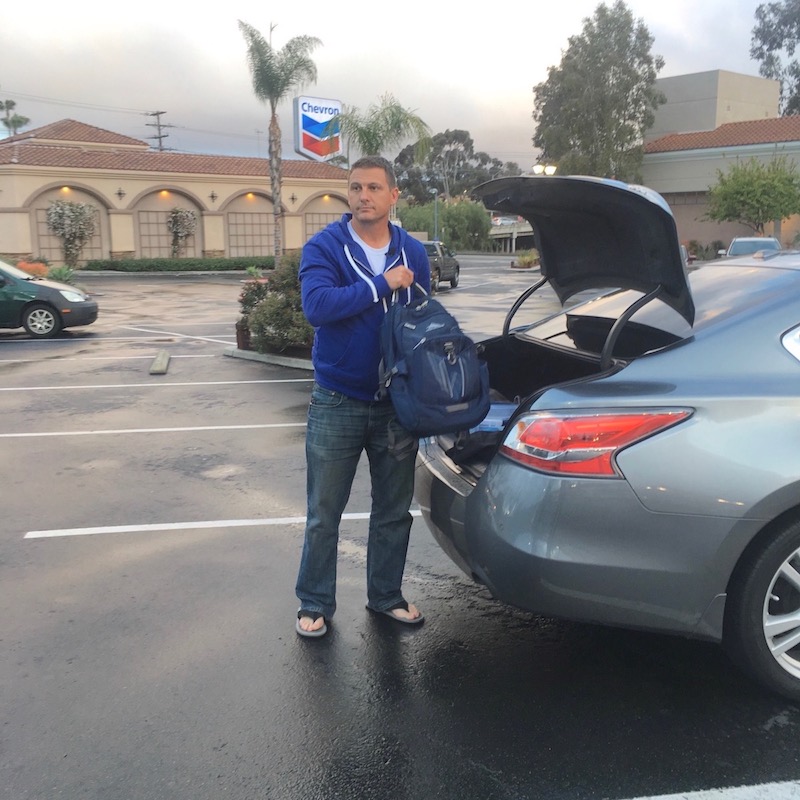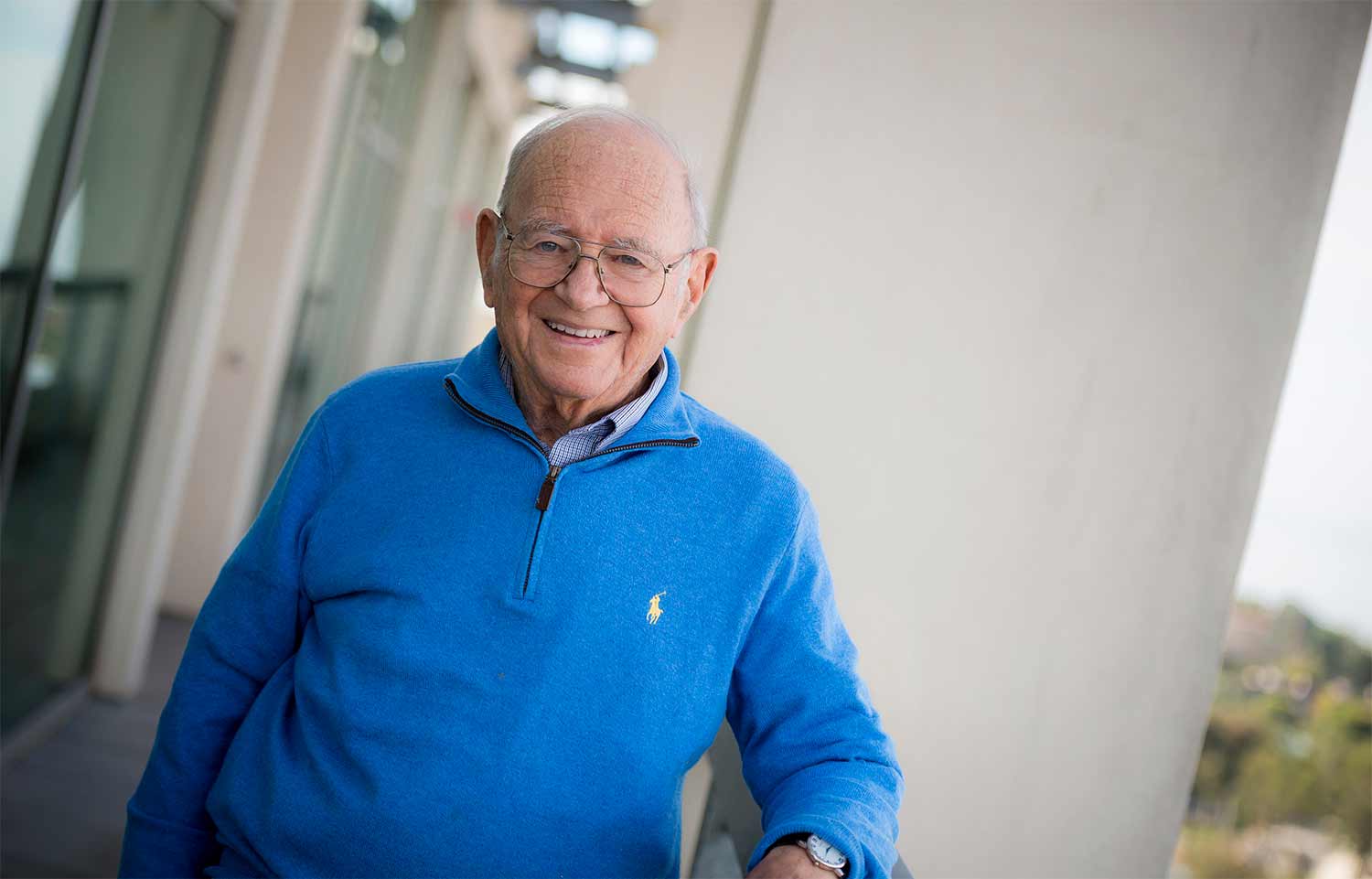Daily Business Report-April 13, 2018
After finishing his first driving shift, Chad Bordes heads to the gym to shower and change before starting his next job selling cars online. (Photo by Amita Sharma, KPBS)
Having a Job (or two, or three) Doesn’t Mean
You Can Afford to Live in California
By Amita Sharma | KPBS
Sandwiched between California’s iconic Highway 101 and the Pacific Ocean is a parking lot in Encinitas, where Chad Bordes’ car doubled as his home.
The rain pounded and the wind blew; it was 3:30 in the morning in mid-March and still dark outside. Bordes emerged from the front seat of his gray Nissan Altima, wearing a t-shirt, jeans and flip-flops. He walked over to his trunk, that also served as his closet.
The newness of the day had him bleary-eyed. “You wake up and you’re like, ‘Oh, I’m in my car,’” Bordes said. “It’s like a bad episode of ‘Groundhog Day,’ everyday.”
Bordes lived out of his car for the month of March; it was light years from what he imagined for himself. Bordes is 46 years old. He has an MBA from the University of Phoenix. He drives Uber and Lyft and has a part-time job with an online car auction company. Still, it’s not enough to pay the bills.
For a time, Bordes was among the estimated 134,000 Californians who are homeless, according to the California Department of Housing and Community Development. The state doesn’t keep track of how many of those people have jobs. But, as the cost of living in California continues to rise, some residents find themselves with jobs that don’t pay enough to afford a stable place to live. Until the end of February, Bordes rented a room in a home in Encinitas for $750 a month. But the owner decided to sell and Bordes’s take-home pay of between $2,000 and $2,400 a month wasn’t enough to get a one-bedroom apartment in San Diego, where the average rent for a one-bedroom runs about $1,700 a month, according to MarketPointe Realty Advisors in San Diego.
So, he lived in his car for a month. In April, he found a room in a home in Vista for $450 on Craigslist. “It’s pretty small, Bordes said. “It’s an 8-by-8. It’s actually a laundry room. It’s got a closet. It’s got windows. It’s a place to rest my head.” He said he’s grateful for the room but “this situation is month-to-month. I don’t know how long the person I am living there with will stay there. I mean it’s a likely possibility that I might end up in my car again.”
Bordes owes nearly $100,000 in student loan debt on his MBA. His monthly payments to pay that down is $1,300.
He’s had financial problems in the past. Bordes filed for bankruptcy in 2003 after a divorce. But he said he’s worked hard to rebuild his credit.
At 3:45 a.m., Bordes’work day began. “Alright, another day in paradise,” he said as he drove out to the gas station. A full tank cost him $55. Then he checked Uber and Lyft ride requests. “I’m looking for the longer rides, 45 minutes plus,” Bordes said. “I like to do two of those in the morning because it starts me off with $70 or $80 in the morning right off the bat.” At 4:30 a.m., his smartphone pinged. He picked up a couple in the northern tip of San Diego County to take them to the airport. He made $40. At 7 a.m., Bordes went to a gym to shower and change into a fresh set of clothes. By 7:30 a.m., he was out the door to start his next job. Already, he was tired. His shift selling cars online ended at 3 p.m. and he went back to driving. “It’s very, very exhausting,” Bordes said. “There are times during the day when I’ll just turn the apps off, if I am not working at my other job, and just try to catch a 15-minute nap because I’m exhausted.”
When Bordes was living in his car, he made sure to leave room in his trunk for his passenger’s luggage. He hid his own belongings — clothes, laptop, pillow and blanket — tucked underneath a black towel. He didn’t often talk about his living circumstances but said the typical reaction when he did, was one of disbelief. “It’s shock,” Bordes said. “It’s like, ’whoa, why are you living in your car?’” Bordes asked himself that same question. He thought his MBA would have enabled him to get a job that paid at least between $75,000 and $100,000 a year. “I thought the degree would make me more marketable,” he said. But it hasn’t paid off.
Bordes said he sneaks in time during the day to search for sales and marketing jobs. So far, he’s only received rejections. Bordes said he hasn’t even gotten a call back for entry-level jobs that start at $36,000. He doesn’t know why exactly. He guesses that’s because he’s not using keywords in his resume that would prompt a company to respond, or maybe there just aren’t enough middle income jobs or perhaps his MBA makes him overqualified.
“I wake up in the morning and I’m just sad and I think, God, I wish things were different. I wish I would have gone down a different track or gotten a different degree.”
The wondering. The work. The living situation. It has drained him. “There are times I just get really emotional,” Bordes said. “I just start crying. I get really sad. One of the things I think about is, Oh, yeah my parents would be real proud of me, 46 living in my car. My parents had bigger dreams. My dad never went to college. My mom didn’t go to college either. They held bigger dreams for me.” But, there was fire in his eyes when asked what he would like to know from California’s politicians.“How did we get here?” Bordes wanted to know. “How did we get to a point where we devalue human life to where it’s okay if we step over homeless people? Why isn’t there more housing being built for lower income families? What are we doing to bring more jobs in?”
After another two-hour Uber/Lyft shift, at 8:30 p.m., Bordes finished his day. His fatigue left him cynical about how the state’s politicians might answer him.“They don’t care,” Bordes said. “Honestly, they don’t care.”
This story is part of the California Dream series, a statewide media collaboration of CALmatters, KPBS, KPCC, KQED and Capital Public Radio with support from the Corporation for Public Broadcasting and the James Irvine Foundation.CALmatters.org is a nonprofit, nonpartisan media venture explaining California policies and politics.
____________________
San Diego Awarded $11 Million in Tax Credits
in Latest Round of Cal Competes Program
In the latest round of the California Competes Tax Credit program, 15 San Diego companies were awarded more than $11.7 million in tax credits. Compared to other metro areas in the state, San Diego fared well across all measures.
Of all metros, San Diego received the highest number of small business awards, with more than 40 percent of small business recipients hailing from San Diego. These small businesses were awarded more than $1.7 million in tax credits for commitments to create 71 jobs and invest $4.5 million.
San Diego large businesses — defined as having more than $2 million in annual revenue — were awarded more than $10 million in credits. San Diego ranks second in the large business category, with 16 percent of total credits awarded to local large businesses. San Diego also earned the second place ranking in the amount of job creation among all metros, with almost 700 new jobs coming to the region over the next five years.
____________________
Binational Delegation to Champion
U.S.-Mexico Relationship in Mexico
Amid ongoing political tensions between the U.S. and Mexico, nearly 90 business and community leaders from San Diego and Baja California will travel to Mexico City to reinforce the region’s support for the U.S.-Mexico relationship. The San Diego Regional Chamber of Commerce’s 13th annual three-day Binational Delegation to Mexico City departs April 15.
The group will meet with Mexican leaders and government officials to strengthen economic and diplomatic ties and discuss opportunities for collaboration on projects and issues affecting the region.
“It is increasingly important that we show our region’s ongoing support for the U.S.-Mexico relationship. Our businesses, communities, and quality of life depend on it,” said Jerry Sanders, Chamber President and CEO. “As a binational region we face unique challenges and opportunities. We know that to get ahead, grow jobs, and be globally competitive, we must work together. It’s that perspective we plan to share with leaders in Mexico City.”
The delegation represents a diverse mix of industries, organizations, and elected officials from both sides of the border. Taking part in the trip: San Diego Mayor Kevin Faulconer, Tijuana Mayor Juan Manuel Gastélum, Imperial Beach Mayor Serge Dedina, Mexicali Mayor Gustavo Sanchez, and Poway Mayor Steve Vaus.
Delegates will meet with a variety of Mexican federal agencies and representatives to help advance the policies that benefit both economies.
____________________
New SDSU Study Sheds Light
on Skin Cancer Risk Behaviors
Ultraviolet (UV) light exposure through indoor and outdoor tanning is the leading environmental risk factor for developing skin cancer. Now, a new San Diego State University study explains how a new technology that shows future aging effects could lead people to engage in less risky tanning behavior.
One of the main reasons people tan is because they believe tanned skin is physically attractive. However, previous research reveals that individuals are less likely to tan if they are worried about the potential negative impacts of tanning — increased wrinkles, sun spots, and premature aging of the skin.
Hoping to build on these findings, Aaron Blashill, an assistant professor in SDSU’s department of psychology, and colleagues conducted a randomized controlled trial in which 219 participants, who were considered at risk for developing skin cancer, received one of three interventions: Viewing a novel facial morphing computer program that simulated how their older selves would look if they continued tanning or stopped tanning, as well as receiving health information; an alternative treatment focused on mindfulness plus health information; or health information alone. The researchers then followed the participants for one month following the intervention.
They found that participants who saw the facial morphing program reported tanning indoors 60 percent less frequently than their peers in the other two interventions.
“These results are important as they suggest that a brief 10-minute intervention focusing on appearance changes can substantially reduce indoor tanning among at-risk individuals,” said Blashill.
____________________
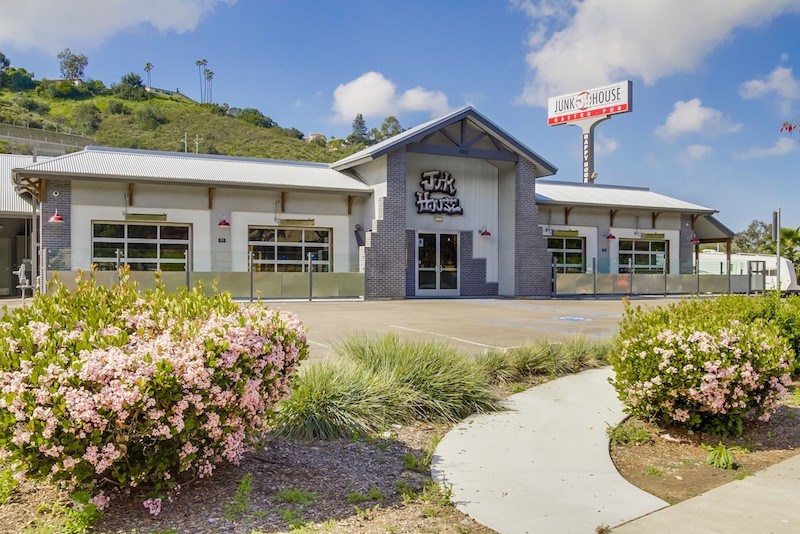
Building Formerly Housing
Junk House Gastro Pub Sold for $1.85 Million
DAVLES LLC, a real estate and property management company, has purchased 5,485 square feet at 5351 Adobe Falls Road in San Diego. The building sold for $1.85 million. The seller was L & L Acquisitions LLC.
The building was formerly occupied by Junk House Gastro Pub, which is designed in an industrial chic style with roll-up garage doors and exposed ducting. Under the new ownership, evaluating the long-term possibilities for food uses at the restaurant facility is a top priority.
“We are pleased to conclude a transaction for our client that allows great flexibility in leveraging site location and visibility for a broad range of retail and food services uses. We expect future use to increase the value of this well-located asset,” said Dan McCarthy, director at Senior Heritage Group, who represented the buyer, along with Kyle Clark.
____________________
Bay City Brewing Co. Makes List
of the Fastest-Growing Craft Breweries in U.S.
The nonprofit Brewers Association has named Bay City Brewing Co. in San Diego among the fastest-growing craft breweries in the U.S. The list represents 25 states and a diverse cross-section of the brewing community. The state of California claims the speediest growth with seven breweries listed.
“Being in the craft brewery capital of the world can present a lot of challenges to company growth,” said Greg Anderson, co-owner of Bay City. “At Bay City, though, our priority has always been to grow community first — the families, friends and loved ones that want to make memories with good beer. It’s what we owe our fast growth to, despite the ultra-competitive industry.”
While the Brewers Association won’t release specific volume details until May, the association noted median growth from 2016 to 2017 for the top 50 breweries was 216 percent. During that time frame, the median size of these breweries grew by 679 barrels.
____________________
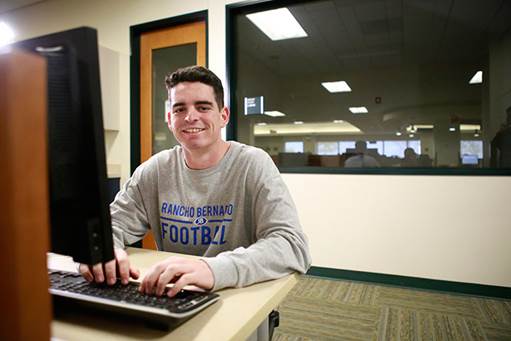
More High School Students Taking College Courses
The number of high school students taking San Diego Community College (SDCCD) courses continues to skyrocket, a new district report shows, with concurrent enrollment rates increasing almost 74 percent to 3,402 students this spring compared to last year
Consistent with the SDCCD’s emphasis on completion, many of these high school students will move on to City, Mesa, or Miramar colleges with a number of college credits already completed, accelerating their journey to a degree or certificate and their pathway toward a rewarding career.
Matthew Quis, 18, is just one example. The Rancho Bernardo High School senior will be entering a four-year university in the fall with 24 college units – nearly enough to qualify him as a sophomore – that he secured through Miramar College’s growing concurrent enrollment program.
“My parents and I sat down and set up a plan when I was a freshman,” Quis said. “We knew that if we did one course a semester and over summer we could really reduce the cost once I got to a four-year institution. We looked at it as saving about $4,500 dollars for every 3 unit class we completed at Miramar College.”
In many instances, high school students don’t even have to set foot on a college campus or even be of traditional college age to earn college credits. Some 75 percent of the 3,402 high school students concurrently enrolled in City, Mesa and Miramar classes are taking the college courses at their high school campuses.
____________________
SANDAG Board to Meet with Tribal
Leaders at Regional Tribal Summit
SANDAG and the Southern California Tribal Chairmen’s Association will hos the 2018 San Diego Regional Tribal Summit on Friday at the Pala Casino Spa and Resort in Pala. Every four years the SANDAG board of directors meets with the elected leaders of the 17 federally recognized tribal governments in the region. The San Diego region is home to the largest tribal governments in the nation.
The meeting is scheduled for 10 a.m. to 3 p.m. Assemblyman Todd Gloria is the keynote speaker.
____________________
Personnel Announcements
Barry Wellins Joins Union Bank’s Private Banking Team
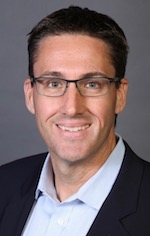
Barry Wellins has joined Union Bank’s Private Banking team as regional director for San Diego. Wellins will manage a team of private bankers and will be based in the San Diego corporate office.
Wellins recently relocated from Texas and has held senior leadership roles in retail, digital and small business banking for a number of well-known financial institutions in Texas, New York, Arizona and California throughout his more than 20-year career. He served as the Santa Monica branch manager for Union Bank from 2001-2003.
“I have built my career by understanding the needs of today’s clients and working closely with my teams to deliver great service at every level,” said Wellins. “It feels really great to be back at Union Bank. This bank has a solid reputation for acting in the best interests of our clients and doing the right thing. I’m really looking forward to building our team of private bankers who can serve the growing needs of our private banking clients.”
____________________
TIP San Diego Welcomes New Crisis Team Manager
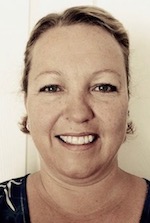
Trauma Intervention Programs of San Diego (TIP San Diego) welcomes its newest staff member, Andrea Barkley, as Crisis Team manager. A Valley Center resident with a bachelor’s degree in psychology, Barkley joins the management team to help volunteers continue their mission to provide emotional first aid to survivors of tragedy in order to ease their immediate suffering and facilitate their healing and long-term recovery.
Previously serving as an ombudsman for the Navy and volunteering with organizations such as RAINN, Relay for Life and The Elizabeth Hospice, Barkley found the work of TIP in a distinctive way after losing her brother to suicide. “I wanted to find a way to give back,” says Barkley, “I found out that TIP had actually been called out to my brother’s home when he died. So I feel as if things have come full circle in a way.”
Part of Barkley’s goals as Crisis Team Manager is to retain the volunteers currently serving in San Diego County and also gain new volunteers that have the need to serve and feel TIP is the right fit.
____________________
Hotel del Coronado Appoints Director of Events and Catering
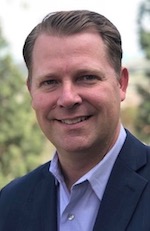
Hotel del Coronado announced the appointment of Dane Gorup to director of events and catering. The Del has been the location for major milestones and events for many guests and visitors, from weddings and anniversaries to corporate events and more, and Gorup will take the lead on continuing that tradition. He will infuse day-to-day operations and large projects with his passion for innovation and creativity, while overseeing conferences and catering at Hotel del Coronado.
Gorup is trading the city views of Hilton Anaheim Hotel and bringing his extensive experience in management, restaurant and banquet operations to the seaside resort. Having held multiple positions with Anaheim Hilton throughout the past six years,, including director of catering and group sales, food and beverage director, and more, the fast-paced demands of the Orange County property — one of Hilton Hotels and Resorts’ largest food and beverage operations — has prepared Gorup to excel in producing extraordinary events at The Del.

